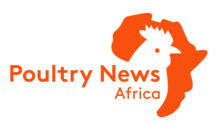South Africa has given its first avian influenza vaccine permit in a historic move, signaling a dramatic and strategic shift in the country’s strategy for handling the recurring bird flu danger. The decision, issued in early July 2025, allows Astral Foods, a large chicken producer, to vaccinate its broiler breeder stock against highly pathogenic avian influenza (HPAI). This action heralds a new era in the fight against chicken diseases and seeks to stabilize the country’s poultry industry, which has suffered catastrophic losses in recent years.
The impact of HPAI on South Africa’s poultry sector has been devastating. During the 2023 outbreak alone, the country lost approximately 30% of its poultry population. The economic fallout was massive, with billions of rand lost and a ripple effect that severely affected food security. Egg shortages, increased prices, and job losses painted a grim picture for both consumers and producers. The former response strategy, which relied heavily on biosecurity measures and mass culling, proved insufficient in containing the spread and preventing future outbreaks.
This newly introduced vaccination strategy is seen as a proactive and science-driven alternative. By allowing vaccination, the government is recognizing that culling alone is no longer sustainable in the face of frequent and aggressive outbreaks. The initial phase of the rollout will focus on around 200,000 breeding birds—representing a small but crucial portion of the national flock. These long-living breeder birds are vital because they form the backbone of poultry reproduction. Protecting them ensures the continuity of healthy stock and serves as the first shield in preventing large-scale outbreaks.
Industry stakeholders have welcomed the move with enthusiasm. Experts and agricultural leaders described the permit as a turning point that will enhance national preparedness, reduce mortality rates, and help mitigate the economic shocks associated with bird flu outbreaks. By focusing initially on the H5 strain of the virus, the government hopes to build a strong foundation for further expansion of the vaccination strategy. Although the H7 vaccine has not yet been approved, regulatory bodies are expected to expedite the process in the coming months.
The decision also aligns South Africa with over 30 other countries that have adopted vaccination programs, including major poultry-producing nations like China, Mexico, and France. These countries have demonstrated that carefully managed vaccination strategies can coexist with export standards and food safety protocols. South Africa’s plan follows a similar structure, emphasizing controlled use, rigorous monitoring, and continuous surveillance.
Agricultural economists believe this policy shift could boost investor confidence and ensure long-term sustainability within the poultry industry. However, they caution that successful implementation will require significant coordination between public institutions and private producers. Access to vaccines, cold chain logistics, and monitoring systems must all function smoothly to ensure the campaign’s success.
As the vaccination program gains momentum, South Africa positions itself at the forefront of animal health innovation on the continent. This proactive step could serve as a model for neighboring countries grappling with similar biosecurity challenges. In the face of evolving viral threats, the country is no longer reacting—it’s preparing.



